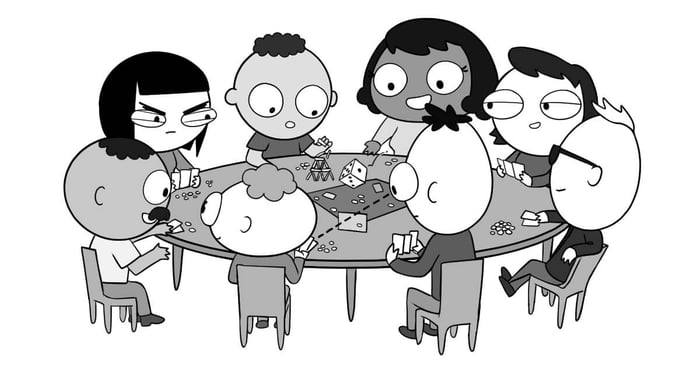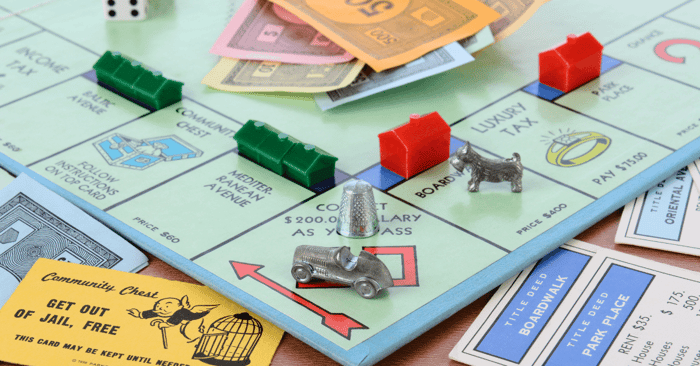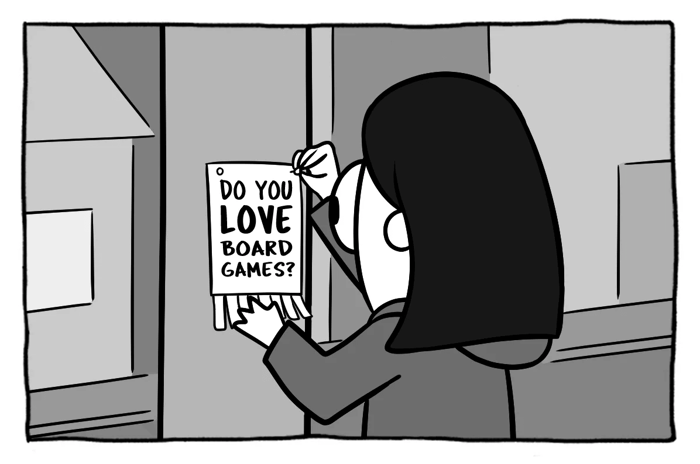Sometimes playing board games can be an opportunity to meet new people. Sometimes, you play with people you thought you already knew—until their style at the table reveals who they really are. Then you begin to understand how types of gamers come about.
The behavior that comes out when the dice start rolling can provide insight into peoples’ worldview and core personality. For me, this phenomenon struck like a lightning bolt when I was dating my husband and we sat down to a friendly game of Clue.
While sitting close by, then-boyfriend proceeded to copy down all the suspects, weapons, and rooms I’d marked on my sheet. When I found out, I almost broke up with him. In my family, cheating at games was considered a sign of poor character. Only later, when I started playing board games with the rest of his family, did I understand that my future husband was just being himself. Like most of us, he had a board game persona. Here are the eight different types of people I've noticed from over the years from playing board games. The first is my husband. I'll call him...
The Strategic Cheater

For this player, game prowess depends in part on proficiency at cheating. I suspect most Strategic Cheaters, like my husband, come from families with multiple siblings, engaged in a lifelong struggle to get the better of one another.
Never make the mistake I made and give a Strategic Cheater the opportunity to peek at your hand. If you play Monopoly with a Strategic Cheater, another player must be deputized as guard before the banker can take a bathroom break.
It’s no surprise at all that my husband’s favorite board game is the classic version of Cosmic Encounter, where one special card sanctions a player to cheat with impunity—as long as they don’t get caught.
The Hacker

You might mistake this player for another cheater. But far from breaking rules, this player has memorized every rule in the book—and identified every loophole. Even if you’re sure the game designer never intended the game to be played the way the Hacker wants to play it, you can’t necessarily stop them.
In a recent game of Monopoly, the Hacker in my family decided to make an alliance with another player to avoid going bankrupt. Since we were playing for money, they announced their intention to merge their properties and cash, and split the prize if they won. The rest of us objected that there is no process for mergers in the Monopoly rulebook.
No problem, the Hacker announced. She promptly used up her remaining money buying properties from her ally, then sold everything she owned (including the properties she'd just purchased) to her ally for $1. When the Hacker landed on another opponent’s property, all she had to lose was that lonely dollar, because the rest of her assets were snugly protected in her new partner’s bank.
The Artist

This player couldn’t care less if they win or lose. The Artist spends more time choosing the color of their pieces than they do thinking about gameplay strategy. If playing Ticket to Ride, the Artist may be reluctant to lay down tracks because their colorful train cars are part of an elaborate sculpture on the table next to the board. In Scrabble, the Artist will pass up a higher scoring word for one with more "style points." Why spell COAT on a Triple Letter Score when you can spell CANTO for fewer points?
The Competitor

This player cannot abide by the phrase, "It's just a game." They must win, no matter what. Playing Candyland against a 5-year-old? The Competitor will get to that ice cream cone castle first, tears be darned.
Having a Competitor at the table can ratchet up everyone’s excitement. Or, the Competitor can slow a game waaaay down. For example, they might need to study the Settlers of Catan board for 20 minutes before laying down their next road. And if you have two dyed-in-the-wool Competitors at your table, hope you have good snacks! Because it’s gonna be a long night.
The Gamer

The first sign that you’re sitting down with the Gamer: They brought their own dice. To a Yahtzee game.
The Gamer is a connoisseur, a professor, and, frankly, a bit of a know-it-all. But whether the Gamer is a delight or a chore to play with really depends on how they dish out their encyclopedic game knowledge. I have a Gamer friend who will bring over a new board game for us to try out, help us figure out the nuances of it, and keep things moving along so we all have fun. The Gamer you don’t want to invite is the one who constantly remarks that the current version of the game isn’t really as good as the out-of-production original game, which by the way was originally issued by a company that no longer exists, and the only people who are really playing it properly are those following the rules in the original Latin. You know the type.
The Just Wanna Have Fun Players

This is often me. If it’s not a word game, I’m not playing to win so much as I’m enjoying spending time with my friends. I’m the poor sap who didn’t realize that the Competitor has spent the past five turns moving in on me for the kill.
We Just Wanna Have Fun players enjoy games that involve a steady stream of mood-enhancing events. Catan is great because we get more lovely sheep every time anyone rolls the right number. The card game Splendor is always a good time, because I get to collect so many gem cards and feel like an heiress. Sometimes I have so much fun playing that I win without realizing it and keep right on playing.
The Trash Talker

"Seriously? THAT is the best card you have to play?"
"Where did you learn to play Risk, the Peace Corps?"
For the Trash Talker, it's all about intimidating the competition, or, if that fails, annoying them into submission. With a light attitude, the Trash Talker can keep everyone engaged and excited, and even get them laughing. Trash Talk can also work as a strategy, like when you trick your Trivial Pursuit opponent into doubting themselves and changing a correct answer to a wrong one.
But beware: Too much trash talk, especially in combination with a run of bad luck, can spoil the mood and discourage repeat games.
The Social Butterfly

A little table talk is one thing, but the Social Butterfly can talk so much you all all forget what game you’re playing. After finishing a long and entertaining story, this player inevitably asks, "Whose turn is it?"
Your turn, Butterfly. It's always your turn.





